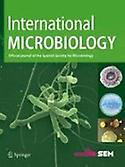Estimados compañeros.
Hemos recibido la siguiente solicitud de apoyo. Son dos cartas explicando la situación. Una de Sylvia Valdezate del ISCIII y otra de Markus Göker del DSMZ
Primera carta
Desde el Instituto Leibniz/Colección Alemana de Microorganismos y cultivos celulares (DSMZ), que gestiona actualmente el LPSN – List of Prokaryotic names with Standing in Nomenclature Institute https://lpsn.dsmz.de/ nos solicitan nuestro apoyo a su petición.
Incluyo en correo original de uno de sus responsables Dr. Markus Göker para apoyar la propuesta de un código más informativo y una nomenclatura bacteriana estandarizada y estable.
Os describo la situación:
El futuro de una nomenclatura procariota estandarizada internacionalmente –y de LPSN– depende del futuro del Código Internacional de Nomenclatura de Procariotas (ICNP), que LPSN implementa.
La comisión pertinente (ICSP) se opuso firmemente a una enmienda a la ICNP que habría permitido que las secuencias del genoma se utilizaran como tipos nomenclaturales para especies con un nombre publicado válidamente.
Esta desviación del requisito de depositar cepas tipo en colecciones de cultivos se consideró que socavaba la reproducibilidad científica y la disponibilidad futura de cepas para, por ejemplo, la práctica médica (por ejemplo, la identificación de patógenos con MALDI-TOF o pruebas fenotípicas) y la investigación (por ejemplo, sobre la resistencia a los antibióticos).
A pesar de las críticas masivas, el SeqCode se publicó en 2022, basado en la idea rechazada.
La propuesta “Lo mejor de ambos mundos” de Arahal et al. (2024) ofrece una solución justa y equilibrada que mantiene el estándar de publicación válida a la vez que regula de forma exhaustiva los nombres de Candidatus (propuestas taxonómicas formales), brindando así incentivos y reconocimiento para el trabajo con bacterias cultivadas y no cultivadas.
La votación del ICSP comienza en una semana, por lo que la fecha límite para apoyar la petición a favor del depósito de cepas con este fin será hasta el día 2 de septiembre.
Gracias por vuestra colaboración
Saludos cordiales
Dra. Sylvia Valdezate svaldezate@isciii.es
Laboratorio de Referencia e Investigación en Taxonomía.Bacteriología
Centro Nacional de Microbiología. Instituto de Salud Carlos III
Segunda Carta
Dear LPSN users,
This is our second newsletter in 2024, and again a long time has passed since the last one. Today we are asking for your help. We do not normally do this, but there is one particularly important and urgent matter on which we would be grateful for your help.
HELP ENSURING THE FUTURE OF LPSN
If you haven’t done already, please sign and share this petition for a safe future of prokaryotic nomenclature and LPSN:
https://www.ipetitions.com/petition/support-the-best-of-both-worlds
The future of an internationally standardized prokaryotic nomenclature – and of LPSN – depends on the future of the International Code of Nomenclature of Prokaryotes (ICNP), which LPSN implements. In the spring of 2000, the relevant commission (ICSP) strongly opposed an amendment to the ICNP that would have allowed genome sequences to be used as nomenclatural types for species with a validly published name. This departure from the requirement to deposit type strains in culture collections was seen as undermining scientific reproducibility and the future availability of strains for, e.g., medical practice (e.g.
identification of pathogens with MALDI-TOF or phenotypic tests) and research (e.g. on antibiotic resistance). Despite massive criticism, the SeqCode was published in 2022, based on the rejected idea and contradicting the ICNP. The “Best of Both Worlds” proposal by Arahal et al. (2024) offers a fair and balanced solution that maintains the standard of valid publication while comprehensively regulating Candidatus names, thus providing incentives and recognition for work with both uncultured and cultured bacteria. Please support this proposal for a more informative code and a standardized and stable bacterial nomenclature at https://www.ipetitions.com/petition/support-the-best-of-both-worlds
JOIN THE AD HOC COMMITTEE ON MITIGATING CHANGES IN PROKARYOTIC NOMENCLATURE
Many medical, veterinary and biotechnology microbiologists are concerned about changes in prokaryotic names in databases, journal articles and other sources. The Ad Hoc Committee on Mitigating Changes in Prokaryotic Nomenclature (CoMiCProN) has therefore been formed and is looking for members. CoMiCProN is not looking for taxonomists, but for practitioners affected by bacterial name changes. The main activities of CoMiCProN are to compile a list of recommended names for medically important bacteria and to liaise with “multipliers”, mainly providers of databases of prokaryotic names. As CoMiCProN and LPSN work closely together, and as many users of LPSN are practitioners affected by bacterial name changes, we wanted to inform you about the possibility to participate through this channel. The minutes of the committee meetings are available at https://zenodo.org/records/13241701 .
Kind regards
Markus Göker





No comment yet, add your voice below!